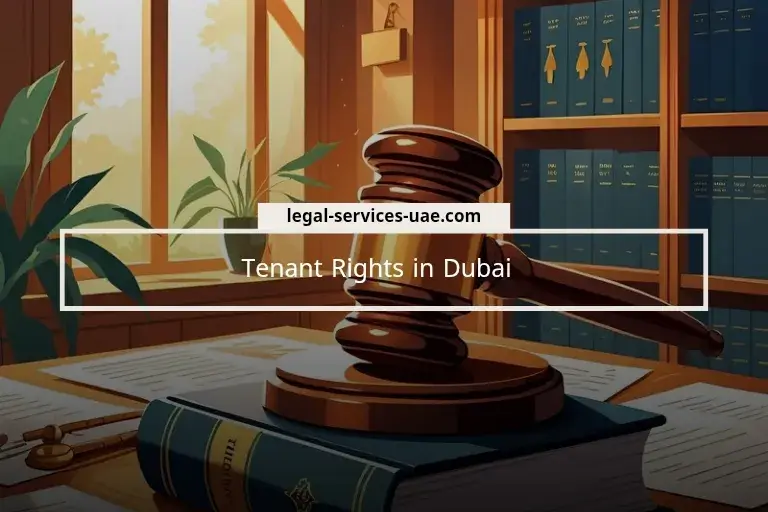Ahmed, a young professional from Egypt, recently moved into a modern apartment in Dubai Marina. A few months later, he faced issues such as sudden rent increases and repeated maintenance delays. Confused and unsure of his rights, Ahmed sought legal advice. His situation reflects what many tenants face due to a lack of awareness about their legal standing.
Understanding tenant rights in Dubai is vital for avoiding legal troubles and protecting your living conditions. This article provides a comprehensive breakdown of the laws, tenant protections, and dispute procedures available in the Emirate under RERA and related legislation.
For expert assistance in defending your tenancy rights in Dubai, click the WhatsApp icon below.
فهرس المقال
Dubai Tenancy Law Overview
Dubai’s tenancy regulations are structured to protect both landlords and tenants, balancing rights and responsibilities under specific legislation.
Key Legal References:
- Law No. (26) of 2007: Governs landlord-tenant relations in Dubai.
- Law No. (33) of 2008: Amends Law No. 26 to further protect tenants.
- Decree No. (43) of 2013: Limits how and when rent increases can occur.
- Decree No. (26) of 2013: Establishes the Rental Disputes Settlement Centre (RDSC).
All tenancy contracts must be registered with Ejari, the digital system regulated by the Dubai Land Department (DLD) and Real Estate Regulatory Agency (RERA).
Your Core Rights as a Tenant in Dubai
As a tenant in Dubai, you are protected by law in the following ways:
1. Registered Ejari Contract
Your tenancy must be registered through Ejari to be legally enforceable. This document is essential for any legal disputes or residency-related services.
2. Controlled Rent Increases
Landlords can only increase rent if allowed by the RERA Rental Index Calculator. Any increase must be communicated in writing at least 90 days before renewal.
3. Maintenance and Repairs
The landlord is responsible for major repairs and essential maintenance unless the contract states otherwise. Tenants should report issues in writing.
4. Eviction Notice Requirements
Landlords must give 12 months’ notice via registered mail or notary public to evict for reasons such as sale or personal use of the property.
5. Privacy and Peaceful Enjoyment
Landlords cannot enter the premises without proper prior notice. Your right to quiet enjoyment of the property is protected under the law.
Your Responsibilities as a Tenant
While Dubai law offers tenants strong legal protections, these come with equally important responsibilities. Fulfilling these obligations helps maintain a balanced relationship with the landlord and ensures compliance with the rental contract and governing laws.
- Timely Rent Payments: Non-payment can lead to eviction proceedings.
- Proper Use of Property: Residential units must not be used for commercial or unauthorized purposes.
- No Alterations or Subletting: Modifications or subletting require written approval from the landlord.
- Return in Good Condition: At lease-end, tenants must return the unit in the condition received, excluding reasonable wear and tear.
Handling Rental Disputes: Rental Disputes Settlement Centre (RDSC)
Should conflicts arise, tenants can file a complaint at the RDSC. The center adjudicates:
- Rent disputes.
- Eviction disagreements.
- Maintenance responsibilities.
- Unlawful rent increases.
Ensure all documents—Ejari, payment receipts, written communications—are available to support your case.
Practical Tips to Protect Your Tenancy Rights
To avoid problems and ensure your rental experience is secure:
- Use the RERA Rental Calculator to verify rent increase legitimacy.
- Always communicate via written and dated emails or registered letters.
- Keep receipts and maintenance reports.
- Consult a real estate lawyer in Dubai before signing or renewing a lease.
FAQs: Tenant Rights in Dubai
Whether you’re dealing with unfair rent hikes, unclear eviction notices, or unresolved repairs, knowing your tenant rights in Dubai empowers you to act confidently and lawfully. Dubai’s real estate legislation, backed by RERA and enforced through Ejari and the RDSC, offers solid protections for residents.
If you face rental challenges or need to assert your tenant rights in Dubai, we invite you to contact our experienced lawyers in Dubai, by clicking the WhatsApp button below.
Read more about Explore the Best Real Estate Lawyer in Dubai.
Was this helpful?
Specialized Legal Content Writer, possessing deep legal knowledge and exceptional ability to demystify legislation and analyze judicial developments. He delivers clear, precise content that helps you understand your legal rights and obligations while empowering you to make informed decisions across diverse legal domains. Working within our expert legal team, he ensures credibility and trustworthiness in every piece of content.



I am constantly thought about this, appreciate it for posting.